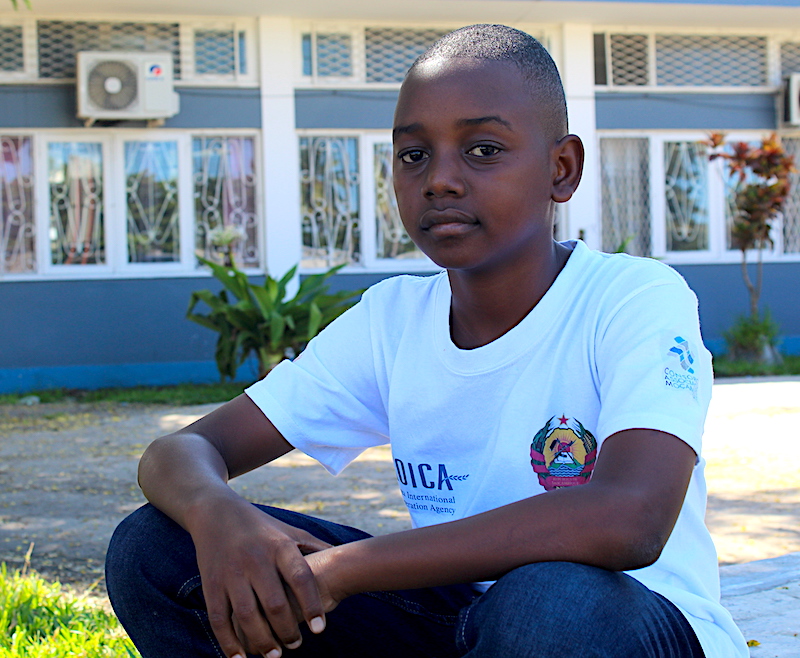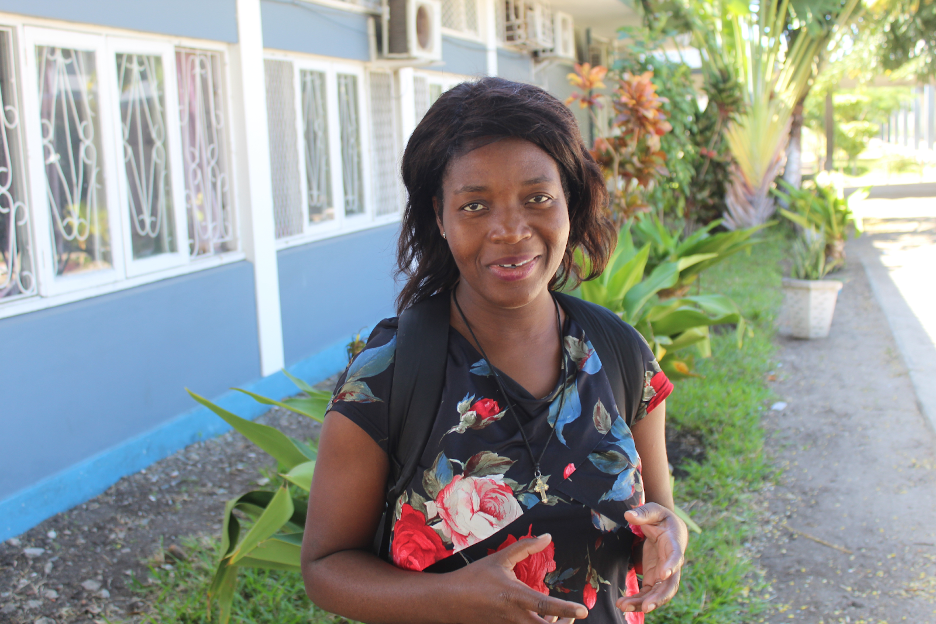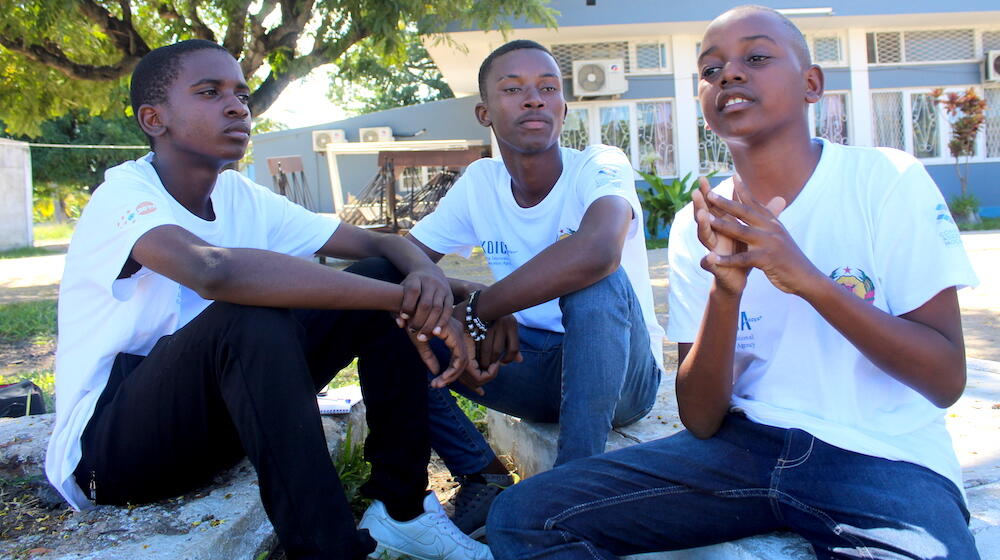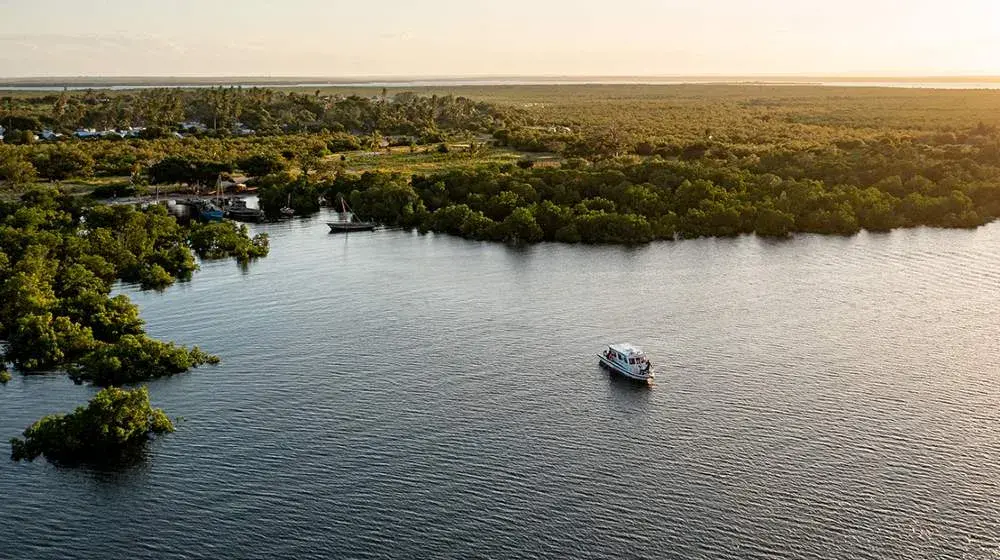SOFALA PROVINCE, Mozambique – Just 14 years old, Cleiton Adriano has set himself an admirable goal. The ninth grader is holding awareness-raising activities with his peers to help create an inclusive space at his school in Beira, Sofala – one that is free of gender-based violence (GBV).
“Spreading positive messages about gender equality and the empowerment of girls has been one of my daily tasks at school,” said Cleiton. One of his greatest desires is to “become an agent of positive change in my community” – which he has almost certainly achieved.
He received training on GBV in August last year, as part of a UNFPA project to improve reproductive, maternal and adolescent health in Sofala province, with funds from the Korea International Cooperation Agency (KOICA).
I am proud to see changes in boys' behaviour, actions and mindset.
“I have engaged a few members to join the boys’ club. I am proud to see changes in their behaviour, actions and mindset,” said Cleiton.

Since early 2022, 14 members of the boys' clubs have been trained as leaders to guide peer-to-peer discussions with 84 members who have been recruited to date. The training was conducted with technical support from the Provincial Directorates of Education and of Health.
Two boys who joined Cleiton’s club are Leonel and Benilton, both grade 10 students. Leonel recalled how he used to bully girls, especially his classmates at school, and how this had changed: “After joining the sessions, I realized my misconceptions and now aim to share positive information with both my classmates and community," said Leonel.
When Benilton joined the sessions led by Cleiton, he made a decision to change his behaviour, which has made his parents proud of him. “The sessions not only changed my life, but thanks to them I identified and helped to report cases of gender-based violence in my community,” he said.
The sessions not only changed my life, but I identified and helped to report cases of gender-based violence in my community.
Almost weekly, groups of adolescent boys and young men aged 13 to 20, gather together to discuss topics ranging from sexuality, gender, early marriage and toxic masculinity, to create positive change in their communities. Their meetings are mostly held at secondary schools, which helps them attract more young people to attend.
Engaging men and boys to advance gender equality
Mozambique lags behind in many respects when it comes to gender equality1. One in five women and girls aged 15 to 24 years believe that wife beating can be justified. More than 50 per cent of women were married before their 18th birthday (2006-2022), with many giving birth to children while still children themselves. The nation has a high adolescent birth rate of 180 births per 1000 girls aged 15 to 19 years (2023). In 2018, 16 per cent reported intimate partner violence in the past 12 months.
By involving boys and young men to respond to and lessen the incidence and impact of GBV in their schools, the project promotes women's empowerment and contributes to positive change in male behaviour, attitudes and practices. Implemented by UNFPA’s partner, Consorzio Associazioni con il Mozambico (CAM), it has been launched in 14 schools in the districts of Beira, Dondo, Nhamatanda and Búzi.
Boys have been creating effective behavioural change within the school.
To date, the boys clubs’ have reached 434 adolescents and youth, using awareness sessions in their schools and communities.

“One of the great gains was to change the mentality of some parents and guardians who believed that their sons’ involvement in activities addressing gender-based violence and sexual and reproductive health would compromise their masculinity,” said Cremilda Gravata, one of the 14 teachers trained on GBV under the KOICA project. She supports the boys’ club at her secondary school.
"By disseminating messages about preventing and combating gender-based violence and sexual and reproductive health and rights, boys have been creating effective behavioural change within the school,” Ms. Gravata said.
Adriano Cerveja, from Sofala's Provincial Directorate of Education, supports the view that boys have played a crucial role in reporting gender-based violence, bullying and harmful practices. They have also referred adolescents to youth-friendly health services for family planning and other health-related support, information and counselling.
Since 2022, the KOICA-funded multi-year project is enabling boys like Cleiton to educate and inspire their peers to challenge stereotypes regarding masculinity and risk-taking behaviour, and to reinforce their role in advancing women’s rights and gender equality.



